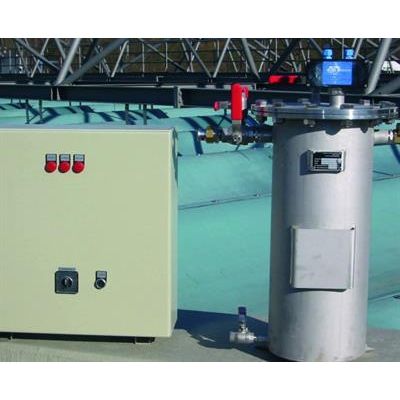

- Home
- Companies
- Sülzle KOPF GmbH
- Products
- Sülzle-KOPF - Hybrid Heating System

Sülzle-KOPF - Hybrid Heating System
Hybrid heating systems use different systems to heat water. Heat generation from renewable energy sources is often combined with the use of fossil fuels. Smart technologies recognize when which heating system is used most efficiently to generate hot water in the building in a cost-effective and environmentally friendly way. Through the energy mix, hybrid heating systems compensate for possible fluctuations in the supply of renewable energy and ensure safety and comfort.
heating types
Most hybrid heating systems combine gas or oil-fired condensing boilers with a heat pump . This converts environmental energy from air, water or soil into heat using electricity. So-called renewable energy hybrid heating systems are becoming increasingly popular. They use several renewable energy sources to heat water for heating, kitchens and bathrooms.
Important factors
The costs for installing a hybrid heating system are difficult to quantify. Several factors are crucial for the calculation:
- heat demand of the house
- new building or existing building
- Existing heating systems
- combination of energy sources
- funding opportunities
combination possibilities
Hybrid heating systems are equally possible for new buildings and older buildings. Owners of existing buildings with oil or gas heating systems can become less dependent on fluctuating prices for fossil fuels and the CO2 tax by installing a hybrid heating system . This is because the lower the emissions of fossil fuels, the lower the CO2 emissions .
A simple solution is to retrofit solar thermal energy to heat the heating water. It can also be combined with a heat pump to save even more energy. The use of photovoltaics to heat water in the house is becoming increasingly popular. Modern PV modules also work in diffuse light conditions when the solar panels no longer produce any output, and are therefore less dependent on the season.
